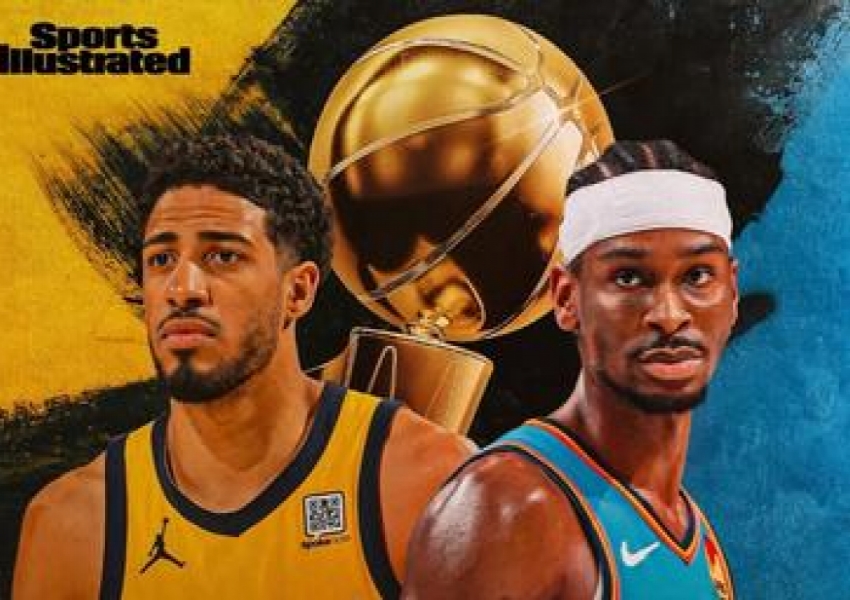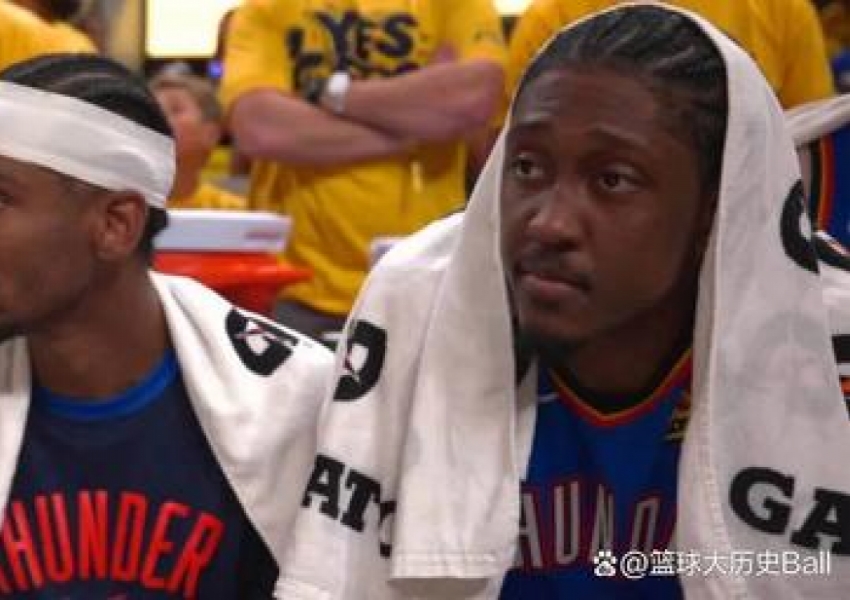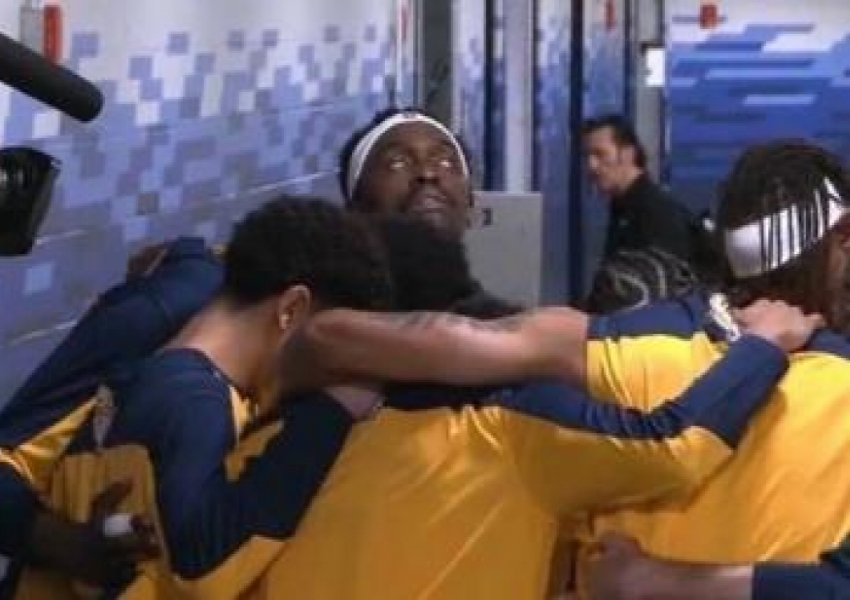G6 Meltdown: The Pacers Scored Just 108—So How Did the Thunder Lose by 30?
When the dust settled on Game 6 of the 2025 NBA Finals, the scoreboard told a simple story: Indiana Pacers 108, Oklahoma City Thunder 91. But the true tale of this game—an absolute dismantling on the grandest stage—went far deeper than the final score. The Pacers didn’t ride a historic shooting night or lean on a transcendent star performance. Instead, they beat the Thunder by playing their brand of basketball to near perfection, while OKC unraveled in nearly every possible way.

Yes, Indiana scored only 108 points—just one more than they did in Game 5, which they lost. Yet in Game 6, they led by 30 at the end of the third quarter and cruised through a garbage-time fourth. How? Let’s break it down.

Early Spark, Sudden Collapse
The Thunder actually started well. They opened the game with an 8–2 run that prompted an early timeout from Rick Carlisle. But whatever was said in that huddle ignited a response that OKC simply couldn’t match. Indiana blitzed OKC with a 24–9 run to close the quarter, flipping a 6-point deficit into a 9-point lead.

Then came the second quarter—an unrelenting blizzard of defensive pressure and offensive balance. When the Thunder cut the score to 34–33 midway through the period, it seemed they had weathered the storm. Instead, they walked into a buzzsaw. Over the final eight minutes of the half, the Pacers launched a 30–9 barrage that left OKC gasping for breath. The halftime score read 64–42—the largest halftime deficit in NBA Finals history since official records of such stats began.
From that point forward, it was a controlled demolition.
The Pacers Blueprint: Depth, Discipline, Defense
What makes this Pacers team so lethal is that they can win games without leaning on superstar outbursts. In Game 6, neither Pascal Siakam nor Tyrese Haliburton eclipsed 16 points. Yet six players scored in double figures before garbage time:
-
Pascal Siakam: 16 PTS, 13 REB, 3 AST
-
Tyrese Haliburton: 14 PTS, 5 AST, 2 STL
-
Andrew Nembhard: 17 PTS, 4 AST, 3 STL
-
Obi Toppin: 20 PTS, 6 REB, 2 STL
-
T.J. McConnell: 12 PTS, 9 REB, 6 AST, 3 STL
-
Aaron Nesmith: 10 PTS, 2 REB, 3 AST
This was textbook Pacers basketball: ball movement, opportunistic scoring, and complete defensive engagement from all five players on the floor.
Three key elements stood out:
1. Turnover Control
Indiana entered Game 6 averaging 18.6 turnovers per game in the Finals—an ugly number that had nearly cost them the series. In Game 6? Just 10 turnovers, including only two in the entire first half. They also completely neutered OKC’s greatest strength: generating live-ball turnovers. The Thunder, who led all playoff teams in steals per game (10.9), had zero in the first half and just 4 for the game. That’s not a typo.
2. Defensive Intensity
Indiana’s offense was solid but far from elite—108 points on modest efficiency. But defensively, they were ferocious. The Pacers logged 16 steals and 5 blocks, forced 21 Thunder turnovers, and made every OKC possession feel like a chore. This wasn’t just hustle—it was schematic discipline. Passing lanes were choked, dribble handoffs were disrupted, and the Thunder's signature fast break game was totally shut down.
3. Controlling the Glass
Before garbage time, Indiana led the rebounding battle 36–29, including a 10–4 advantage on the offensive boards. That translated to a 14–6 edge in second-chance points. Every extra possession felt like a dagger.
Perhaps the best microcosm of Indiana’s balance came in the second quarter, when they outscored OKC 36–17. In that stretch, McConnell and Nesmith combined for 17 points—matching the Thunder’s total output.
And when OKC momentarily trimmed the lead to 18 in the third? Nembhard took over with a three-pointer and two free throws. Then Obi Toppin hit a dagger triple, and rookie Ben Sheppard capped the quarter with a buzzer-beating three to push the lead to 30. Lights out.
Thunder Collapse: What Went Wrong?
Just about everything.
This was a shocking performance from a team that had made its name on discipline and defensive excellence. The Thunder entered the game:
-
1st in playoff steals per game
-
3rd-fewest turnovers per game
-
2nd in defensive rating
And yet in Game 6, they looked completely rattled.
Defensive Disintegration
OKC’s perimeter defense was invisible. They couldn’t pressure the ball, failed to rotate in time, and never found a rhythm guarding Indiana’s off-ball motion. The Pacers’ guards got into the paint at will, the wings cut behind sleepy defenders, and even with average shooting numbers, Indiana found great shots possession after possession.
The Thunder recorded just 4 steals—well below their average—and had zero at halftime. Their identity crumbled.
Offensive Implosion
Even worse than the defense was OKC’s offense, which sputtered, stalled, and finally collapsed. The numbers are ugly:
-
21 turnovers
-
8-of-30 from three (26.7%)
-
Starters: 1-of-12 from deep
-
Multiple four-minute stretches without scoring in the third quarter
This wasn’t just an off night—it was dysfunction. Their spacing vanished, ball movement stagnated, and even open looks rimmed out.
Core Stars Falter
Yes, this was a team loss—but the core three were all disappointing:
-
Shai Gilgeous-Alexander: 21 PTS on 15 shots is respectable. But 8 turnovers and just 2 assists? That’s catastrophic from your MVP candidate. By the end of the third, he had more turnovers than the entire Pacers roster.
-
Jalen Williams: After a heroic 40-point Game 5, he returned to Earth with 16 points and a mind-boggling -40 plus-minus. That’s the worst single-game +/- in NBA Finals history.
-
Chet Holmgren: A defensive bright spot, but offensively? 2-of-9 shooting, 0-of-3 from three, 4 points. In the Finals, he’s shooting 35.3% from the field and just 11.8% from three. The moment has overwhelmed him.
The bench, too, was nonexistent. Aaron Wiggins (3 PTS), Cason Wallace (0), Isaiah Joe (3), and Alex Caruso (0) were collectively outscored in a single quarter by McConnell.
How Did Indiana Win So Big Without a Huge Scoring Night?
That’s the beauty—and brutality—of this Pacers team. They don’t need one player to go nuclear. They simply execute better than you for 48 minutes. They defend, they share, they cut, they crash, they compete. And when they don’t beat themselves with turnovers, they’re nearly impossible to overwhelm.
This was the best version of Indiana’s identity—a team that doesn’t need to play perfect offense to bury you. They play smarter, they play deeper, and they play together.
Game 7 Awaits
For the first time in nine years, the NBA Finals are headed to a winner-take-all Game 7. Momentum may be wearing navy and gold, but OKC returns home with one more chance to validate their 68-win season.
Game 6 was an implosion. But Game 7 is a reset button. Will the Thunder rediscover their edge? Or will the Pacers, the ultimate ensemble cast, finish one of the most improbable title runs in recent memory?
One thing is clear: if Indiana plays anything like they did in Game 6, it might not matter who’s home. The better team will walk away champions.
Copyright Statement:
Author: focusnba
Source: FocusNBA
The copyright of this article belongs to the author. Reproduction is not allowed without permission.
Recommended Blog
- FMVP Fifth?! How 33-Year-Old T.J. McConnell Became a Finals Force in the Shadows
- The SGA Stopper: Just How Good Has Andrew Nembhard Been in the NBA Finals?
- $320 Million Over Five Years: Is 28-Year-Old Devin Booker Really Worth It?
- $229 Million Over Four Years! Is 27-Year-Old De'Aaron Fox Worth It?
- Two Second-Round Picks? Obi Toppin Is Writing His Own Playoff Legacy in Indiana
- 28-Year-Old No.1 Pick, $40 Million Salary, Averaging Just 0.8 Points—How Much Longer Will the NBA Tolerate Him?
- Transformed and Unstoppable: Just How Dominant Is Julius Randle in This Year’s Playoffs?
- Controversy Brewing: Shai Gilgeous-Alexander’s Whistle Factor — Where Did the Timberwolves Really Lose?
- What’s Next for Westbrook? Evaluating Russ’s Season and Future in the NBA
- Back-to-Back Second-Round Struggles: Is Michael Porter Jr. on the Trading Block for Denver?